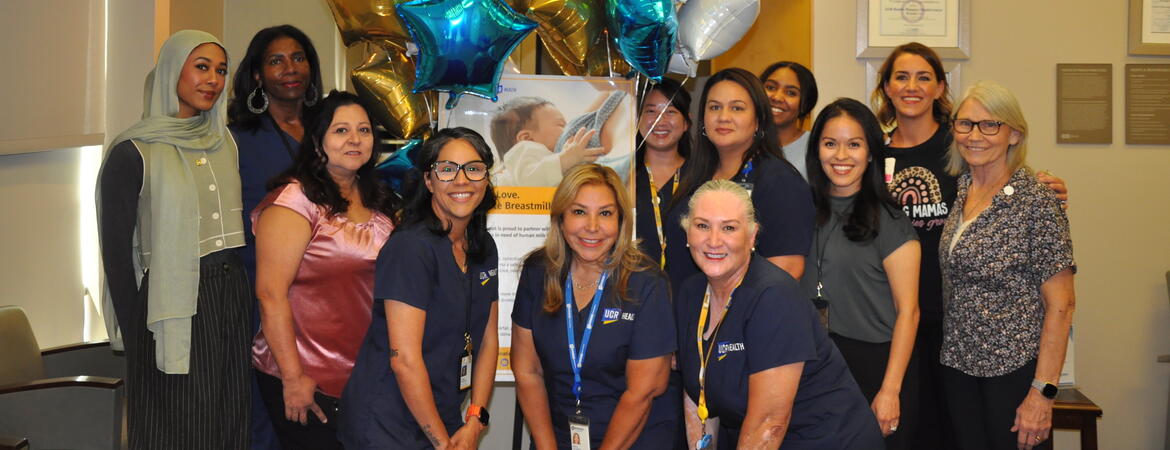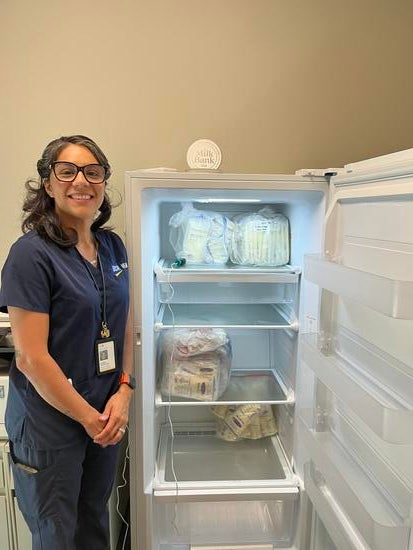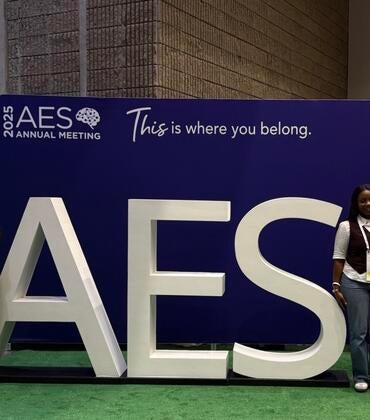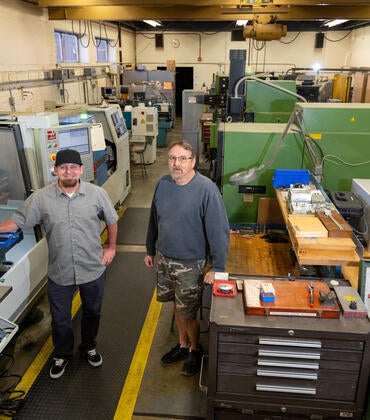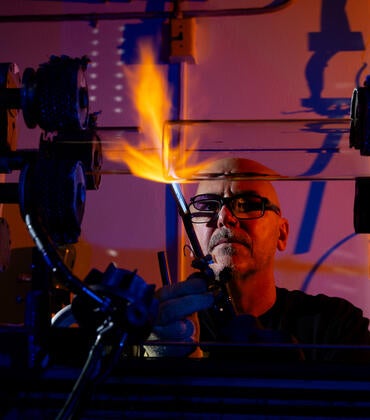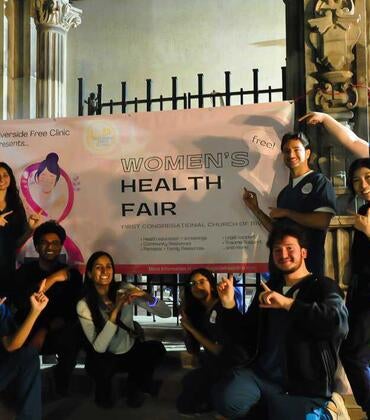The UCR Health Milk Depot, which aims to collect breastmilk for community members in need, celebrated its grand opening on August 20 at the UCR Health Inland Empire Women’s Health Center in Riverside, California. Overseen by Dr. Brenda Ross, maternal fetal medicine specialist at UCR Health, the depot is partnering with the UC Health Milk Bank at UC San Diego to help families and facilities in need of human milk for small or sick newborns.
“Breastfeeding is one of the most natural things a woman can do,” Ross said. “Many studies show it’s beneficial for the baby and mom. In moms it decreases the risk of developing diabetes and helps her bond with her baby. Babies who are breastfed are less likely to have problems with ear infections; antibodies they get from their mothers help to reduce other types of infection. Breastfeeding also decreases the risk of obesity in children. It’s why having a depot like ours is so important.”
A breastmilk depot is a collection site that accepts approved mothers’ milk. When a parent’s breastmilk is unavailable or insufficient, pasteurized donor human milk is the next best thing to prevent necrotizing enterocolitis, a devastating intestinal disease that affects premature or very low birth weight infants and is a leading cause of infant death. Typically, donors are mothers who produce more milk than their child can use or end up with milk they can’t use because their baby develops intolerance to the milk.
“We are excited to be able to bring this depot to the Inland Empire,” Ross said. “It’s an important message celebrating womanhood, motherhood, and parenting. It also increases awareness of breastfeeding.”
According to Ross, multiple studies have shown that women of color don’t breastfeed at the same rates or for the same periods of time as other women, with Black mothers having the lowest reported breastfeeding initiation rate at 74.5%.
Alison Wolf, executive director for UC Health Milk Bank, explained that donated milk is screened and processed into a safe, pasteurized milk product and distributed by the facility in San Diego to hospitalized or newly born children across Southern California.
“Women interested in milk donation can reach out to the UC Health Milk Bank to learn more about the five easy steps to become an approved milk donor,” she said. “Milk donation is a vital gift that benefits fragile infants in our region.”
Zayan Musa, a third-year medical student at UCR and a student lead for the depot who attended the grand opening, was instrumental in connecting the UCR Health Inland Empire Women’s Health Center with ECHO, a charitable non-governmental organization that helped fund the depot.
“ECHO wants the depot to be permanent in the Inland Empire, not just a pop-up project, so that mothers here always have a place to donate breastmilk,” said Musa, who volunteers at ECHO and last year developed with Ross a clinical trial project for breast milk. “My family helped create an orphanage in Bangladesh where, typically, such children don’t get the nutrients they need directly from their mothers. It got me interested in the health benefits of breastmilk and it’s why I started my clinical trial that analyzes the impacts of a mother’s sleep on breast milk. A question we are exploring is: If a mother has enough sleep, does the quality of her breast milk increase?”
Musa stressed that access to breast milk is not always a birthright. Some mothers produce large quantities of milk, more than they can use, and others produce very small quantities, she said.
“Many of the mothers who produce excess breastmilk go through extremely tough life circumstances, such as stillbirths,” she said. “This milk depot will allow these mothers to have a place to give their milk and simultaneously help save a child’s life.”
After being approved to donate, donors can bring breastmilk to the depot in special bags available online as well as pharmacies and some stores. The milk must be delivered frozen. At the depot, the milk bag is placed in a larger bag that notes the date the milk was pumped. It is then stored in a large freezer. Next, donors go online and submit an application. Soon after, the frozen milk is delivered by FedEx to UC San Diego, where it is tested.
The UCR Health Milk Depot is partnering with the Inland Empire Breastfeeding Coalition, a nonprofit organization of healthcare professionals committed to providing evidence-based education and making breastfeeding the norm in the region. Laurie Haessly, a registered dietitian nutritionist and an international board-certified lactation consultant, and LeeAnn Contreras, a registered nurse and an international board-certified lactation consultant, represented the coalition at the grand opening.
“There’s nothing like the UCR Health Milk Depot elsewhere in the Inland Empire,” Haessly said. “It addresses a great need for our community. Currently, many hospitals in our region are not able to provide donor milk to families in need. We plan to get the word out locally on this depot because a lot of people have never heard of a milk bank and milk donations.”
Contreras, who works at Corona Regional Medical Center, said her hospital does not yet have in place a donor breastmilk option for babies in need.
“I’d like to change that by helping get donor milk to Corona Regional,” she said. “Hopefully, with the assistance of the UCR Health Milk Depot and UC Health Milk Bank in San Diego, this can become possible.”
Women interested in donating their breastmilk can call 858-249-6455, email ucmilkbank@health.ucsd.edu, or find more information here.
